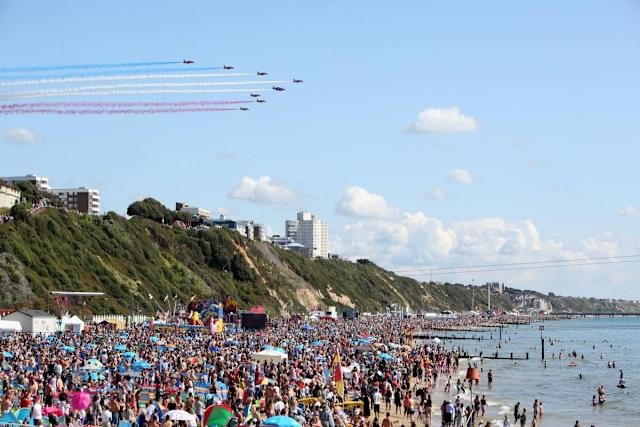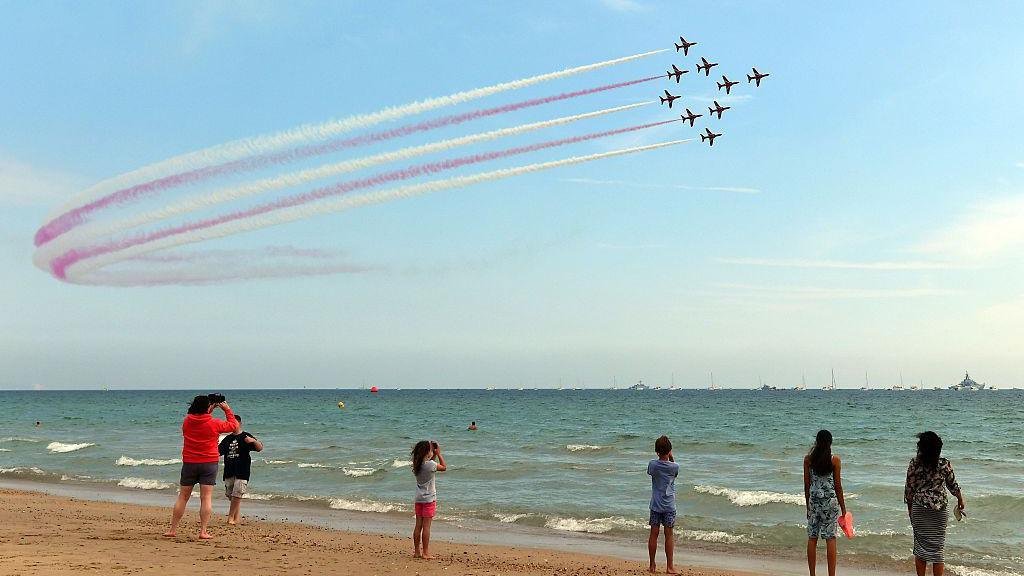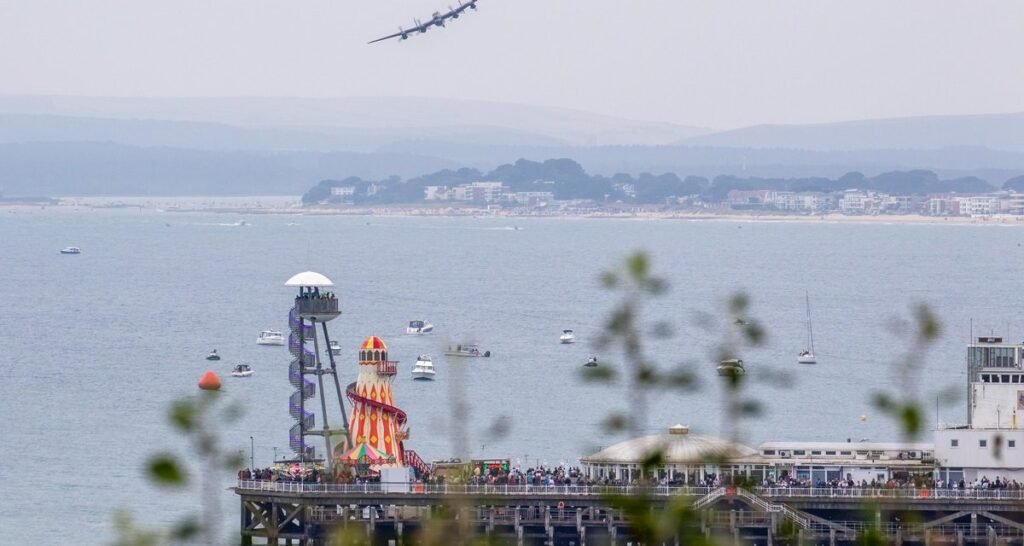Bournemouth Air Festival 2026: Future Hangs in the Balance

The once-celebrated Bournemouth Air Festival 2026 now faces an uncertain future, casting doubt over the return of one of the UK’s most iconic free seaside air shows. Once drawing over a million visitors annually, this marquee summer event is now at risk due to a mix of financial constraints, political instability, and logistical challenges—leaving both the local community and officials scrambling for answers.
Bournemouth Air Festival 2026 Plans Disrupted by Operator Withdrawal
Optimism surrounding Bournemouth Air Festival 2026 began to dwindle when the only remaining private operator in serious negotiations officially withdrew from the planning process. The US-based firm, which had shown significant interest by attending the 2024 event and presenting a 10-year vision for the festival, unexpectedly exited discussions. Their proposal included several non-negotiable terms—most notably, the plan to close off the beach and promenade area between Bournemouth and Boscombe piers for ticketed hospitality access. However, this requirement ran afoul of legal boundaries, particularly the Open Spaces Act of 1906, which mandates public access to such spaces.
Legal and Financial Challenges Stall Bournemouth Air Festival 2026 Plans

Bournemouth Christchurch and Poole Council (BCP) faced an unresolvable dilemma. Granting exclusive access to private entities on public land would set a precedent not just locally but potentially across similar public events nationwide. Additionally, this closure could alienate regular visitors and locals who have long appreciated the open nature of the beachfront festival. Financially, the US operator indicated that without the ability to create revenue through restricted zones and VIP hospitality, the event was not viable. Their departure cited financial unpredictability and political instability as compounding reasons for stepping away.
The Event’s Economic Legacy
Since its inception in 2008, the Bournemouth Air Festival has been a major economic driver for the region. At its height, the event drew over 1.3 million attendees and injected between £14 million to £59 million into the local economy. Vendors, hotels, restaurants, and tourism businesses thrived during the annual four-day spectacle, which blended aviation displays, military performances, and seaside festivities. The 2020 hiatus due to COVID-19 was a temporary pause, but the current situation paints a more indefinite picture.
Soaring Costs and Shrinking Budgets
In recent years, costs for the Bournemouth Air Festival have spiraled. From 2019 to 2022, the council’s net expenditure ballooned from £300,000 to £400,000, reflecting increased spending on insurance, security, and especially counter-terrorism compliance. New public safety legislation enacted after the 2017 Manchester Arena bombing further amplified these costs, making it even more difficult for publicly funded events to remain sustainable without private backing.

Organizers reduced the event from four to three days in 2024, marking another major shift. While 500,000 people still attended, the council faced a final net loss of £248,000. Despite these challenges, BCP officials explored two feasible options for future editions: attract a title sponsor to fund a council-led version or hand over operations entirely to an external body at no cost to the authority. While the latter showed initial promise with five expressions of interest, only two parties followed through—and just one advanced to final talks.
Promenade Dispute: The Key Sticking Point
According to a detailed report submitted to councillors, the US operator’s vision depended heavily on fencing off a major portion of the beachfront. Their goal was to implement high-end hospitality zones to attract revenue. While innovative in concept, the legal ramifications were considerable. Closing a publicly accessible beach for commercial purposes contradicted existing laws, leading the council to reject the proposal.The operator officially withdrew before further debate could occur, citing unworkable conditions.
In a statement read aloud to BCP councillors, the unnamed company explained, “Without the ability to restrict access to significant portions of the beach, our financial model collapses. Add to this the broader economic and political challenges, and it becomes clear we cannot proceed.”
Council’s Cultural Commitment Remains Strong
Despite the air festival’s uncertain fate, BCP Council officials have reiterated their dedication to nurturing Bournemouth’s cultural and tourism sectors. Councillor Millie Earl emphasized that while the air show may not return in 2026, the council remains open to future discussions with sponsors and operators interested in bringing the event back in a sustainable format. In the meantime, alternative public events such as the Bay Run, Arts by the Sea Festival, and Christmas in Bournemouth will continue to bring life and color to the region.
Will Bournemouth Air Festival Ever Return?
With the 2026 deadline appearing increasingly unlikely, any revival of the Bournemouth Air Festival would now target 2027 at the earliest. Organizers typically need at least 12 months to plan a large-scale event like this, especially with complex aviation logistics and international participants. However, the door remains open.The council has left open the possibility of partnering with a more flexible operator or securing a sponsor willing to maintain the festival’s open-access ethos.
What’s Needed for a Revival:
- Legal alignment: Proposals must comply with public access laws.
- Financial sponsorship: A major sponsor must underwrite core expenses.
- Community support: Residents and businesses must feel invested in the event’s future.
- Operational innovation: New formats may be required to balance cost with experience.
Local Reaction: Disappointment and Hope
The local community has responded with a mix of disappointment and cautious optimism. For many, the air festival represents more than an entertainment event—it’s a part of Bournemouth’s identity. Hotels and restaurants that benefitted from the surge in summer visitors now face the prospect of a quieter season. Residents who cherished the Red Arrows flypasts and seaside family picnics now worry they might lose a valuable tradition.

However, the resilience of the town and its stakeholders should not be underestimated. Bournemouth has repeatedly demonstrated its ability to innovate and adapt, and there is still hope that a solution could bring back the air festival in a reimagined, sustainable format.
A Pause, Not a Full Stop
While the Bournemouth Air Festival 2026 seems unlikely to proceed, it may not be the final chapter. The factors contributing to its pause—financial uncertainty, legal challenges, and shifting priorities—are not insurmountable. With strong community backing, political will, and innovative partnerships, Bournemouth may yet see the return of its beloved air spectacle in years to come.
The legacy of the Bournemouth Air Festival is not just about aircraft and crowds—it’s a story of civic pride, economic uplift, and cultural heritage. As the town navigates this period of change, one truth remains: Bournemouth is still soaring in spirit, even if the planes are temporarily grounded.




